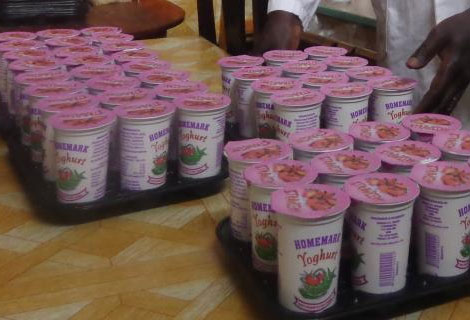×
The Standard e-Paper
Stay Informed, Even Offline
 |
| Yoghurt prepared at Edward Nyaibari’s home in Suneka. [Photo: Winsley Masese/Standard] |
In a region where local processed dairy products shy away from the retail outlets and shops’ shelves, this is a business opportunity Edward Nyaibari seeks to tap into.
The proprietor of Homemark Dairy located at Suneka market, in the outskirts of Kisii town, says all factors swing towards his venture.